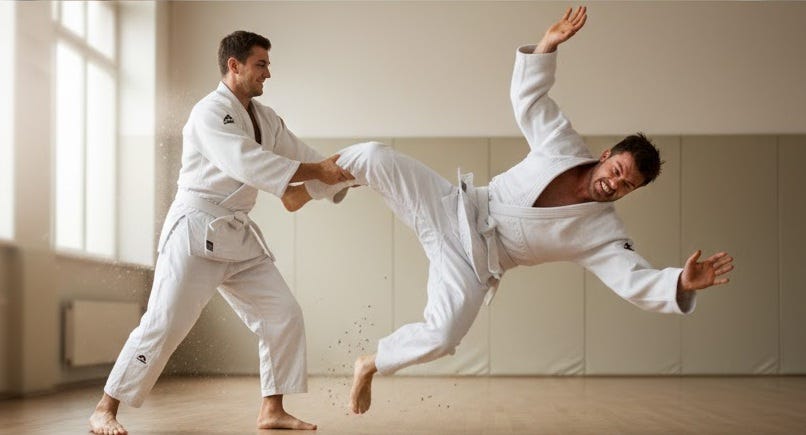The Quiet Trick to Handling Moods (Without Handling Them)
How “mood judo” changes everything without changing anything
Hi there,
A thought came to me recently that I wanted to share. It’s one of those ideas that landed quietly, but kept echoing in a really helpful way.
Here it is:
What if our relationship with moods could be a bit like judo?
In judo, you don’t meet force with force. You don’t resist or overpower. You work with what’s already moving. You flow, redirect, and let momentum do the work.
And honestly… that’s kind of how moods work, too.
Moods run their course. We don’t need to fix them.
From the Inside-Out understanding, we know that our experience always comes from thought in the moment—not the situation, not the mood, not the circumstances.
So when we’re in a low mood, it’s not a sign that something needs to be solved. It’s just a temporary dip in the quality of our thinking. And like all weather systems of the mind, it moves through—as long as we don’t grab onto it and start wrestling.
That’s where this “mood judo” idea came in.
Instead of trying to force a good mood or push away a bad one, what if we just stepped aside a little? Let it pass through. Let the system do what it’s built to do.
Because it really is built to reset.
What “doing mood judo” looks like in real life:
You notice you’re off. Tense, irritated, flat, anxious—whatever it is.
Instead of jumping into analysis mode or trying to fix the feeling, you just say, “Ah, mood. Got it.”
You don’t add layers. You don’t treat it like a problem. You just hang out.
And then—at some point—you notice you’re back in a clearer space, and the low mood didn’t need your intervention at all.
There’s no technique here. It’s just understanding how moods work.
The beauty of not interfering
What I like about this approach is that it’s simple and honest. No mental gymnastics. No effort to reframe anything. Just seeing the system for what it is.
Moods come and go. We don’t cause them with circumstances, and we don’t fix them with strategies. They shift when they’re ready. Our job is not to get in the way.
And when we stop treating moods like enemies or puzzles to solve, they tend to settle faster.
It’s kind of nice knowing that your inner clarity doesn’t go anywhere—it just gets a little foggy sometimes. And fog, by nature, lifts.
So yeah.
Mood judo.
No moves to learn, no techniques to practice. Just the recognition that the less we interfere, the more the system rights itself.
And that’s the real art.
More soon,
Eric



